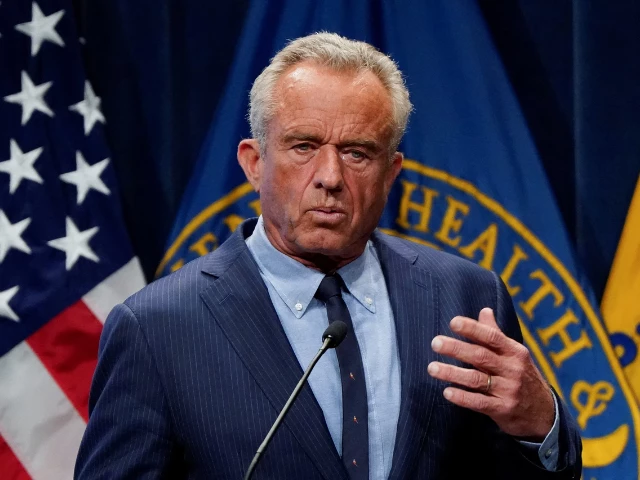RFK Jr autism probe prompts NIH to collect Americans’ private medical data
Medical records from VA, CMS, private insurers pooled for autism data platform

The US National Institutes of Health (NIH) is compiling private medical records from federal and commercial databases to support a new autism research initiative led by health secretary Robert F. Kennedy Jr., officials said this week.
The effort forms part of Kennedy’s push to identify the cause of autism by September, a deadline widely questioned by medical experts.
According to NIH director Jay Bhattacharya, the initiative aims to create a centralised research platform for autism and chronic disease studies using data from a broad cross-section of americans.
"The idea of the platform is that existing data resources are often fragmented and difficult to obtain," Bhattacharya said in a presentation to advisers.
"This aims to bring them together in one secure, accessible place."
Data sources for the project include pharmacy records, genomics data from the department of veterans affairs, claims from private insurers, and information from fitness trackers.
Bhattacharya said the agency is also in talks to expand access to data from the centers for medicare and medicaid services (CMS).
Between 10 and 20 outside research teams will be selected to study the data under federal grants, according to CBS news, which first reported the story.
Kennedy, who described the rise in autism diagnoses as an “epidemic” linked to “environmental toxins”, announced the project earlier this month. His claims have drawn criticism from health professionals who say there is no evidence supporting that theory.
"If you just ask me, as a scientist, is it possible to get the answer that quickly? I don’t see any possible way," said Dr. Peter marks of the food and drug administration, speaking to CBS.
Bhattacharya acknowledged the project will remain an "evolving process," but said early insights were expected by the September deadline.
The NIH has not disclosed how personal privacy concerns will be addressed, but said the platform will comply with federal data protection standards.
Earlier this month, US Health Secretary drawn sharp criticism from leading autism researchers after calling autism a “preventable” condition and attributing its rising prevalence to environmental factors.
Speaking at a press conference, Kennedy rejected the idea that improved screening or genetics account for the increase in autism diagnoses, contradicting both the CDC and experts within his own department.
“Genes don’t cause epidemics,” he said. “You need an environmental toxin.”
The remarks followed a new CDC report showing that 1 in 31 American eight-year-olds has been diagnosed with autism, up from 1 in 36 in 2020.
Researchers largely credit expanded screening, broader diagnostic criteria, and increased awareness for the upward trend.
Autism is not a disease but a neurodevelopmental condition influenced by multiple factors, including genetics. Scientists have long warned against oversimplifying its causes.
“There is a clear genetic contribution. That is not in question,” said Dr. Catherine Lord, a psychologist and autism researcher at UCLA.
Kennedy said his department would prioritise studies into toxins introduced around 1989, a year he claims marks the beginning of the autism “epidemic.” He pledged to deliver preliminary answers by September and invite the research community to join the effort.
But experts expressed concern that Kennedy’s approach could misdirect public funds and stigmatise affected families. “We are being set up to look in the wrong place,” said Dr. David Mandell, a psychiatry professor at the University of Pennsylvania.
While Kennedy did not mention vaccines, he has previously promoted a debunked link between childhood vaccinations and autism. Dozens of studies have found no such connection.
Autism researchers cautioned that Kennedy’s focus on toxins and dismissal of genetic science could undermine more productive avenues of research and delay support services for children already diagnosed.


























COMMENTS
Comments are moderated and generally will be posted if they are on-topic and not abusive.
For more information, please see our Comments FAQ